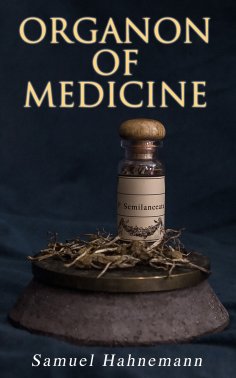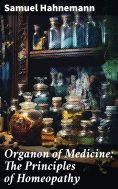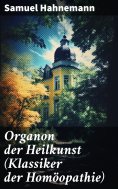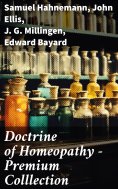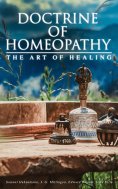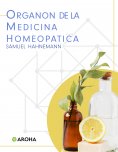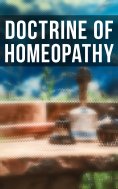Organon of Medicine
About the eBook
Organon of Medicine, originally Organon of the Art of Healing, is a book by Samuel Hahnemann in which he laid out the doctrine of his ideas of homoeopathy. The book is considered the most important work in the field. Hahnemann wrote this book in order to document his new system of medicine. After conducting personal observations and experiments, Hahnemann published his new account of homoeopathy in book form. The book begins with a preface by the author on the subject, with a vast introduction to the subject, the philosophy and the presentation of how Homoeopathy became a method of practice in the medical profession. Organon of Medicine is split into "Aphorisms", numbered 1 to 294. The doctrine of Homoeopathy is discussed in the first seventy aphorisms, often referred to as the theoretical part, while aphorisms 71–294 are known as the practical part:
Theoretical part:
The mission of Physician and Highest Ideal of cure: Aphorisms 1–2
Requisite knowledge of a physician: 3–4
Knowledge of disease: 5–18
Knowledge of drugs: 19–21
Application of drug knowledge to disease: 22–27
Knowledge of choice of remedy, different modes of treatment, superiority of homoeopathic therapeutics: 28–70
Practical part:
Three points, which are necessary for curing: 71
Classification of disease: 72–80
Case Taking: recording of patient data. 83–104
Knowledge of medicinal power, curative power and drug proving: 105–145
Proving of drugs
Most suitable method of employing medicine to a patient: 146–261
Allied support during treatment, diet in acute diseases: 262–263
Preparation of medicines: 267–269
Administration of medicines: 271–292
Mesmerism: 293–294
About the Author
Samuel Hahnemann (1755-1843) was a German physician, best known for creating the pseudoscientific system of alternative medicine called homeopathy. Hahnemann studied medicine and in 1781, he took a village doctor's position in the copper-mining area of Mansfeld, Saxony. Hahnemann was dissatisfied with the state of medicine in his time, and particularly objected to practices such as bloodletting. He claimed that the medicine he had been taught to practice sometimes did the patient more harm than good. After giving up his practice around 1784, he devoted himself to developing a new system of alternative medicine which was based on a principle "like cures like" and he named it homeopathy.
Product Details
Publisher: e-artnow
Genre: Sprache - Englisch
Language: English
Size: 160 Pages
Filesize: 1.0 MB
ISBN: 4064066399726
Published: Aug. 3, 2020
